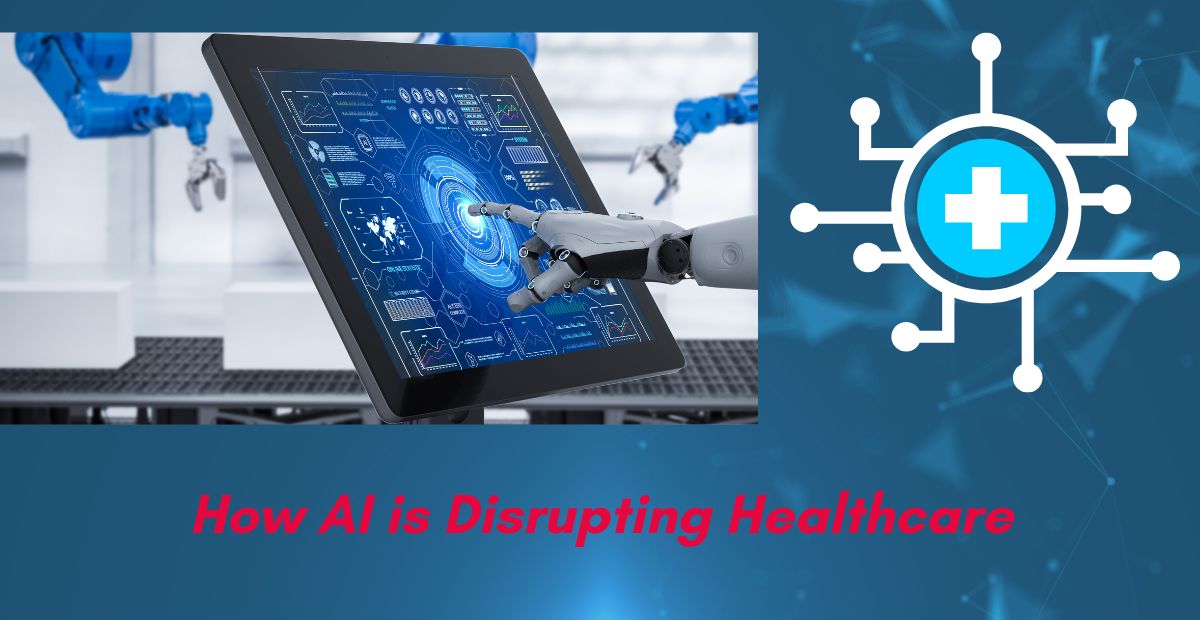Introduction
Artificial Intelligence (AI) is revolutionizing healthcare by improving diagnostics, treatment, and patient care. With advancements in machine learning (ML), natural language processing (NLP), and robotics, AI is enhancing efficiency, reducing costs, and saving lives.
Research from Accenture suggests AI healthcare applications may generate significant cost efficiencies, with potential annual savings reaching $150 billion for the industry by 2026. From early disease detection to robotic surgeries, AI is transforming every aspect of medicine.
In this blog, we’ll explore the key use cases of AI in healthcare, its benefits, challenges, and future potential.
What Is AI in Healthcare?
AI in healthcare refers to the use of machine learning algorithms, deep learning, and predictive analytics to analyze medical data, assist in decision-making, and automate tasks. AI-powered tools help doctors, researchers, and hospitals improve patient outcomes while reducing human error.
Key AI Technologies in Healthcare:
- Machine Learning (ML) – Analyzes large datasets to predict diseases.
- Natural Language Processing (NLP) – Extracts insights from medical records and research papers.
- Computer Vision – Enhances medical imaging (X-rays, MRIs, CT scans).
- Robotics – Assists in surgeries and rehabilitation.
Key Benefits of AI in Healthcare
AI offers numerous advantages, including:
- Early Disease Detection – Identifies conditions like cancer at an early stage.
- Personalized Medicine – Tailors treatments based on genetic and lifestyle factors.
- Cost Reduction – Automates administrative tasks, reducing operational costs.
- Improved Accuracy – Minimizes human errors in diagnosis and treatment.
- Enhanced Patient Care – Provides 24/7 virtual assistance and remote monitoring.
Top AI Use Cases in Healthcare
1. Diagnosis & Disease Detection
Artificial Intelligence (AI) is revolutionizing healthcare by enhancing diagnostic accuracy, speeding up detection, and supporting clinicians. From analyzing medical images to predicting disease risks, AI tools are becoming indispensable in modern medicine—without replacing doctors.
- IBM Watson Health – Uses AI to diagnose cancer and suggest treatments.
- Google’s DeepMind – Detects eye diseases like diabetic retinopathy with 94% accuracy.
2. Personalized Treatment Plans
Artificial Intelligence is revolutionizing healthcare by enabling data-driven, patient-specific treatment strategies. By analyzing genetic, lifestyle, and clinical data, AI helps clinicians deliver precision medicine with improved outcomes.
- AI analyzes genetic data, lifestyle, and medical history to recommend customized treatments.
- Tempus – Uses AI to personalize cancer therapies.
- PathAI – Improves pathology assessments for better treatment decisions.
3. Drug Discovery & Development
Artificial Intelligence is transforming pharmaceutical research by slashing development timelines, reducing costs, and improving success rates. From target identification to clinical trials, AI tools analyze vast datasets to predict drug efficacy and safety faster than traditional methods
- BenevolentAI – Uses AI to find new drug candidates.
- Atomwise – Leverages AI for faster drug development.
4. Robotic Surgery & Assistance
Artificial Intelligence is transforming surgical procedures by enhancing precision, reducing human error, and improving patient outcomes. Robotic surgical systems, powered by AI, are now assisting surgeons in complex operations across various medical specialties
- Da Vinci Surgical System – Performs complex surgeries with robotic arms.
- Smart Tissue Autonomous Robot (STAR) – Conducts suturing autonomously.
5. Virtual Health Assistants & Chatbots
AI-driven virtual assistants are transforming patient engagement by providing instant medical guidance, symptom checking, and appointment management while reducing provider burnout.
- Ada Health – AI-powered symptom checker.
- Buoy Health – Uses AI to guide patients to the right care.
6. Predictive Analytics for Patient Care
AI-powered predictive analytics is revolutionizing patient care by identifying health risks earlier and preventing adverse events through data-driven insights. Hospitals using these tools report 20-35% reductions in preventable complications (JAMA Network study)
- KenSci – Uses AI to predict patient risks and improve care.
- Jvion – Identifies high-risk patients to prevent complications.
7. Medical Imaging & Radiology
Artificial Intelligence is transforming diagnostic imaging by improving detection rates, reducing interpretation time, and assisting radiologists with data-driven insights. According to Grand View Research, the global AI medical imaging market is expected to grow significantly, with projections reaching $4.5 billion by 2028.
- Zebra Medical Vision – Analyzes medical images for early disease detection.
- Aidoc – Flags critical findings in radiology scans.
8. Remote Patient Monitoring
Artificial Intelligence is revolutionizing patient care by enabling real-time health tracking, early intervention, and personalized treatment adjustments outside traditional clinical settings. Market research from Allied Market Research suggests strong growth in the remote patient monitoring sector, with projections indicating the global RPM market could approach $175 billion by 2027.
- Apple Watch ECG – Detects irregular heart rhythms.
- Biofourmis – Uses AI for continuous patient monitoring.
9. Administrative Workflow Automation
Artificial Intelligence is transforming healthcare operations by automating repetitive tasks, streamlining processes, and reducing administrative costs allowing staff to focus on patient care. Health systems using AI automation report 30-50% faster processing times (MGMA study)
- Nuance DAX – AI-powered clinical documentation.
- Olive AI – Automates healthcare administrative tasks.
10. Mental Health Support & Therapy
Artificial Intelligence is expanding mental health care accessibility through 24/7 support tools, early risk detection, and therapeutic augmentation – not replacement. The global mental health AI market is projected to reach $10.5 billion by 2030.
- Woebot – AI chatbot for anxiety and depression.
- Wysa – Emotional support AI assistant.
5. Challenges & Ethical Considerations
Despite its benefits, AI in healthcare faces challenges:
- Data Privacy Concerns – Protecting sensitive patient data.
- Bias in AI Algorithms – Ensuring fairness in diagnostics.
- Regulatory Compliance – Meeting FDA and HIPAA standards.
- High Implementation Costs – Expensive AI infrastructure.
6. The Future of AI in Healthcare
The future of AI in healthcare includes:
- AI-powered nanorobots for targeted drug delivery.
- Fully autonomous robotic surgeries.
- AI-driven genomics for personalized medicine.
- Expansion of telemedicine with AI diagnostics.
7. Conclusion
AI is transforming healthcare by improving diagnostics, treatment, and patient care. From early disease detection to robotic surgeries, AI is making healthcare faster, cheaper, and more accurate.
However, challenges like data privacy and ethical concerns must be addressed. As AI continues to evolve, it will play an even bigger role in revolutionizing global healthcare.
FAQs: How AI Is Transforming Healthcare
What is AI in healthcare?
How does AI improve medical diagnosis?
How is AI Transforming Healthcare Without Replacing Doctors?
How is AI accelerating drug discovery processes?
- Predicting molecular interactions
- Identifying potential drug candidates
- Reducing trial-and-error costs
- Shortening the time to market for new medicines
How does AI help in robotic surgery?
- Precision and minimal invasiveness
- Real-time data analysis during procedures
- Reducing human error in complex surgeries
Are AI-powered chatbots reliable for medical advice?
How is AI assisting radiologists with image analysis?
- Detecting abnormalities in X-rays, MRIs, and CT scans faster
- Reducing false positives/negatives
- Prioritizing urgent cases (e.g., strokes, tumors)
What are the risks of AI in healthcare?
- Data privacy breaches (if patient records are compromised)
- Algorithm bias (if training data is not diverse)
- Over-reliance on AI without human oversight
How does AI support mental health treatment?
- 24/7 mental health support
- Cognitive Behavioral Therapy (CBT) techniques
- Anonymity and accessibility for patients
Will AI make healthcare cheaper?
- Automating administrative tasks (billing, scheduling)
- Preventing misdiagnoses (saving on unnecessary treatments)
- Optimizing hospital operations (predicting patient admissions)
What is the future of AI in healthcare?
- AI-driven nanorobots for targeted drug delivery
- Fully autonomous robotic surgeries
- Wearable AI devices for real-time health monitoring
- AI-powered genomics for personalized medicine
Is AI in healthcare regulated?
- FDA (U.S. Food and Drug Administration) for AI diagnostics
- HIPAA Compliance & AI: Protecting Patient Data Privacy
-
GDPR (General Data Protection Regulation) in the EU
How can hospitals adopt AI?
- Partnering with AI healthcare startups
- Training staff on AI tools
- Implementing pilot projects (e.g., AI diagnostics, chatbots)
Can AI predict patient outcomes?
What are reliable sources to learn about healthcare AI applications?
- Research papers (Nature, JAMA)
- AI healthcare conferences (HIMSS, AI in Healthcare Summit)
- Industry reports (Accenture, McKinsey)
Discover how AI is transforming healthcare through innovative applications – follow Infinity Logic for ongoing insights into these groundbreaking developments.





